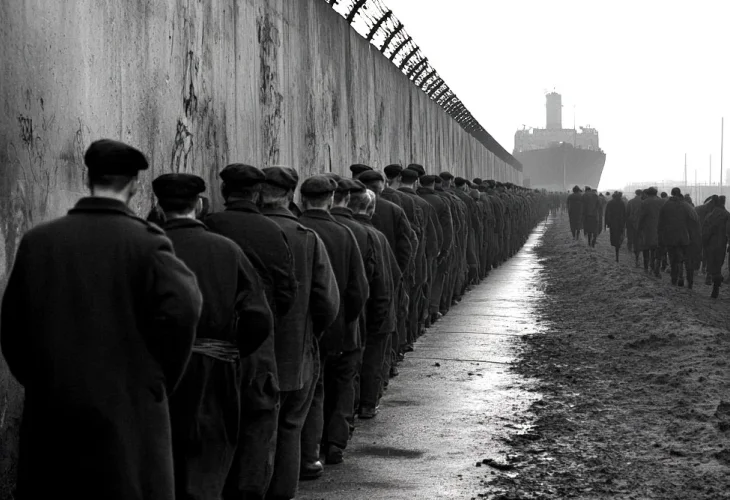How Rabbi Shimshon Wertheimer Altered Jewish Fate in Germany
Moments before the chaos, a mail carriage arrived carrying a letter from Emperor Leopold II himself. Sent from the Hofburg Palace in Vienna, the letter held the police chief of Bamberg personally accountable for any harm to the Jews.

The year is 1699, in the city of Bamberg in southern Germany. A riled-up crowd gathers, itching to attack local Jews. Over a week has passed since the local bishop blamed the Jews for all misfortunes, inciting his followers to take revenge. Bamberg, steeped in German culture, once hosted Emperor Henry and other rulers of the 'Holy Roman Empire.' Yet the local police seemed indifferent to the impending violence against the Jews, standing idly by as if anticipating a dull performance.
Suddenly, the police chief, a respected and stately figure, arrived in a flurry, undermining his usual dignity. To the surprise of his officers, he ordered them to disperse the mob and, if necessary, use force against the aggressors.
It emerged that just moments earlier, a mail carriage had brought a letter signed by Emperor Leopold II himself, sent from the Hofburg Palace in Vienna, the seat of the monarchy. The letter declared that the Emperor held the Bamberg police chief personally responsible for any harm coming to the Jews.
How did this come to pass?
It was Rabbi Shimshon Wertheimer, the savior angel, whose significant influence prevented pogroms and persecutions. Just two years prior, he used his clout with the Emperor to prevent the expulsion of Jews from Rothenburg, the city of the revered Maharam of Rothenburg, who had already been expelled multiple times before. Rabbi Shimshon Wertheimer was the treasurer of the Emperors of the Holy Roman Empire and was dubbed 'the Emperor of the Jews.'
His descendants recount his righteousness and nobility: Rabbi Shimshon hailed from Worms, the city of the great Rashi. A poor but exceptionally gifted young man, he stood out in yeshiva. When he was old enough, he became engaged to the daughter of a wealthy leader in Marling. Yet, a distant fire disrupted their plans, and he heard no more from his betrothed. Most assumed she perished in the fire, but Shimshon refused other marriage suggestions. Two years later, under pressure from his rabbi, he agreed to marry the daughter of Vienna's wealthy leader. However, he insisted on hosting "hospitality dinners" for Jewish wanderers for half a year first. A few weeks in, he recognized his former fiancée among the guests. As he suspected, her family had lost their fortune, and she feared she could no longer fulfill the dowry promise. Nonetheless, Rabbi Shimshon remained faithful, married her, and with divine assistance, achieved even greater wealth independently, becoming Germany's richest man and the Emperor's treasurer.
Alongside Rabbi David Oppenheim, he established the "Jerusalem Fund," supporting all Ashkenazi Jewry needs until World War I. He contributed to ransoming prisoners and was a significant Torah scholar, serving as Moravia's rabbi and Eisenstadt's community leader. His home had a synagogue where he delivered discourses on law and lore, some still preserved in manuscript form. Rabbi Yair Chaim, in 'Chavot Yair' (his uncle), wrote of him: 'Since Rav Ashi’s time, we haven’t seen such Torah and greatness in one place.' His son-in-law was Rabbi Yissachar Brand Lehmann. Rabbi Shimshon passed away on the 17th of Av, 1724.

